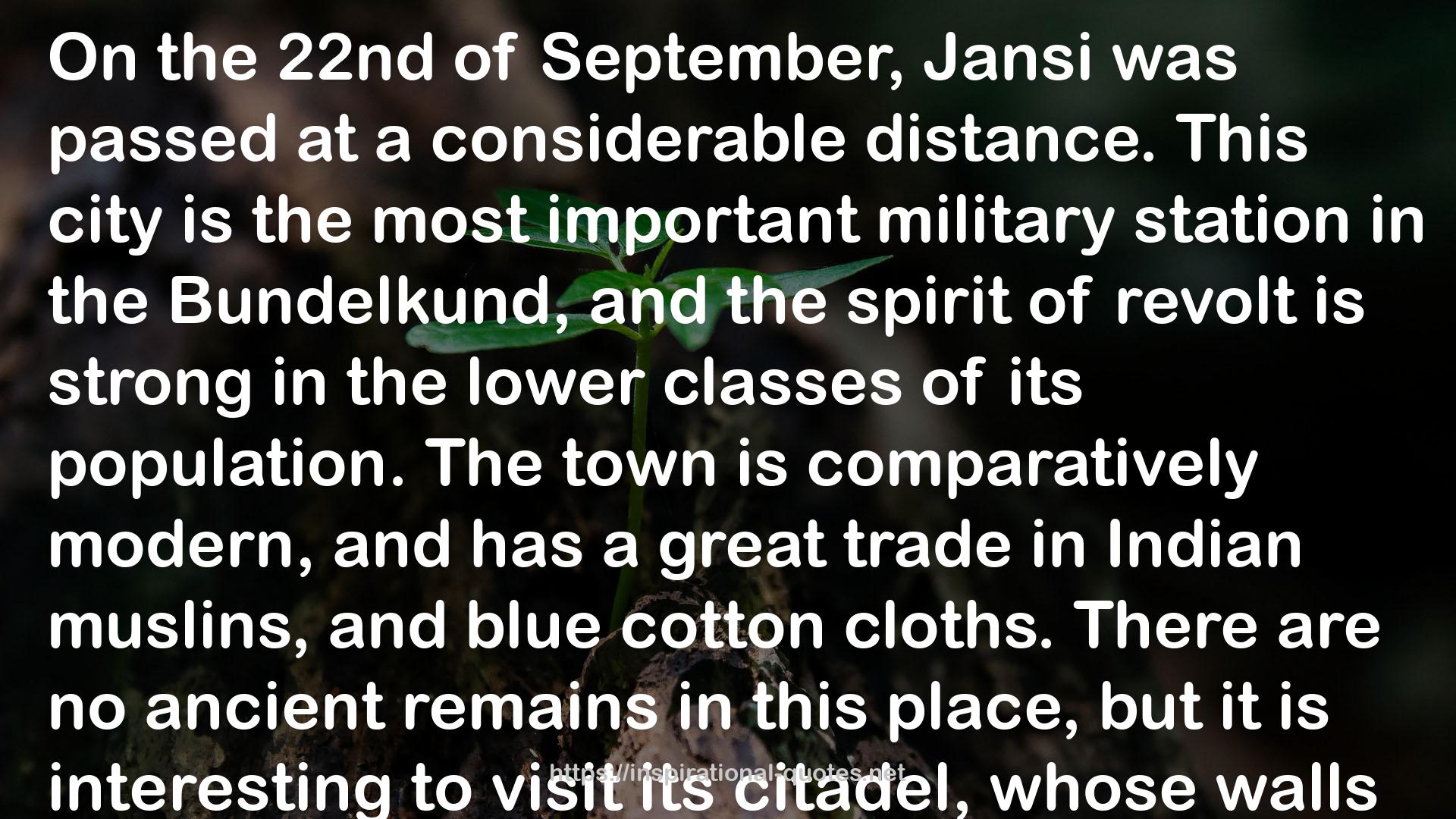" On the 22nd of September, Jansi was passed at a considerable distance. This city is the most important military station in the Bundelkund, and the spirit of revolt is strong in the lower classes of its population. The town is comparatively modern, and has a great trade in Indian muslins, and blue cotton cloths. There are no ancient remains in this place, but it is interesting to visit its citadel, whose walls the English artillery and projectiles failed to destroy, also the Necropolis of the rajahs, which is remarkably picturesque. This was the chief stronghold of the sepoy mutineers in Central India. There the intrepid Rance instigated the first rising, which speedily spread throughout the Bundelkund. There Sir Hugh Rose maintained an engagement which lasted no less than six days, during which time he lost fifteen percent, of his force. There, in spite of the obstinate resistance of a garrison of twelve thousand sepoys, and backed by an army of twenty thousand, Tantia Topi, Balao Rao (brother of the Nana), and last not least, the Ranee herself, were compelled to yield to the superiority of British arms. It was there, at Jansi, that Colonel Munro had saved the life of his sergeant, McNeil, and given up to him his last drop of water. Yes! Jansi of all places must be avoided in a journey where the route was planned and marked out by Sir Edward’s warmest friends! After passing Jansi, we were detained for several hours by an encounter with travellers of whom Kâlagani had previously spoken. It "
― Jules Verne , The End of Nana Sahib: The Steam House (Extraordinary Voyages, #20)
